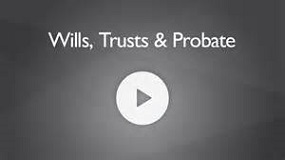Estate Planning 101
We get a lot of commentary from different lawyers on the “proper” way to do things for estate planning. Instead of going through ALL the different ways to do this (and we have several firms lined up to provide some great articles), we decided to post a primer on estate planning.
Below we’ve pasted an article from the web that goes over estate planning and what it means. It is a very good overview of the topic, without much depth. Please take a look at it so that our new articles, which are more in depth as to the differences in estate planning, will be that much more helpful.
Thanks.
http://www.boomnc.com/featured-articles/estate-planning-101-titling-and-beneficiary-designations/
Estate Planning 101: Titling and Beneficiary Designations
The titling of accounts and the use of beneficiary designations is an often-overlooked aspect of estate planning. I’ve seen a number of elaborate estate documents rendered useless by a lack of attention to the details of ownership and beneficiaries. Even estate attorneys, after drafting detailed documents, may just provide an instructional letter about these matters, with little follow-up to make sure everything actually gets handled correctly.
Personal Account
Titles If you have a bank or brokerage account in an individual name, then at the death of that individual it becomes part of their probate estate, and you must then look to their will to determine who receives the account. Accounts owned as “joint tenants with right of survivorship” pass directly to the other co-tenant. This is a common form of titling joint accounts with spouses. If you own an account as “tenants in common” your interest passes to your estate while the other tenant’s interest would pass to his or her estate. For example, if you had a joint bank account with your brother, it might be titled as tenants in common.
Trust Accounts
We’ve previously discussed various types of trusts in our estate planning series. A trust is a separate entity from you and should already contain the names of the beneficiaries of the trust.
POD and TOD
“Payment on Death” (POD) relates to bank accounts while “Transfer on Death” (TOD) is for brokerage accounts, but they both accomplish the same thing, which is to be able to list one or more beneficiaries to receive non-retirement accounts in the event of your death. These are very easy to set up, cost nothing, help to keep these accounts out of probate, and can reduce the time and hassle of transferring accounts at your death. However, there also disadvantages: If you have many different accounts you will need to set this up on each account and also make sure to change each account if a beneficiary change needs to be made. Also, having accounts pass directly to beneficiaries may not be what you really want to do, as it does not allow for the more sophisticated estate management that is possible through the use of trusts. If you have set up POD or TOD on any accounts, make sure your estate attorney is aware of it and that it fits with your overall estate plan.
Retirement Plans
With an IRA, 401(k) or other type of retirement plan you can name beneficiaries to receive the account when you die. If you don’t list a beneficiary, your estate receives the account, which accelerates the taxation of the retirement plan. You can list both primary and contingent beneficiaries. For example, your spouse would ordinarily be your primary beneficiary, while your children would be the contingent beneficiaries. You can also list a trust as a beneficiary, which is particularly helpful when a minor or an incapacitated person is a beneficiary.
Life Insurance and Annuities
When you complete an application for a life insurance policy or an annuity contract you also list primary and contingent beneficiaries. These need careful review and updating. At the time you applied for the life insurance, perhaps you had no children but now have three. Your new estate plan may include a trust and your insurance or annuity beneficiary designation may need updating to include the trust.
It is critical that your account titling and beneficiary designations complement and not contradict your overall estate plan. I encourage you to make sure your attorney, accountant, insurance agent and any other financial advisor are aware of all account designations and beneficiaries.
